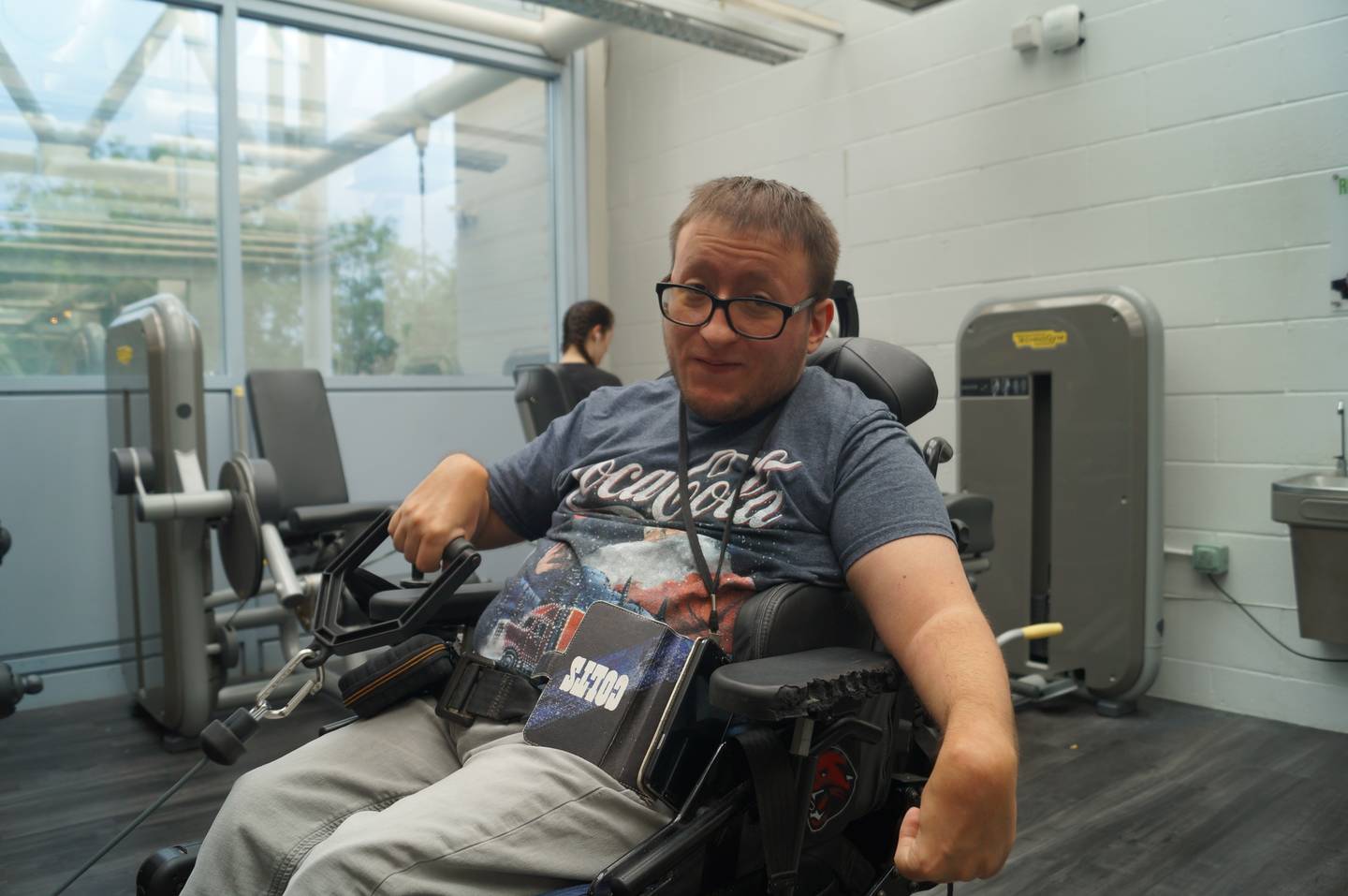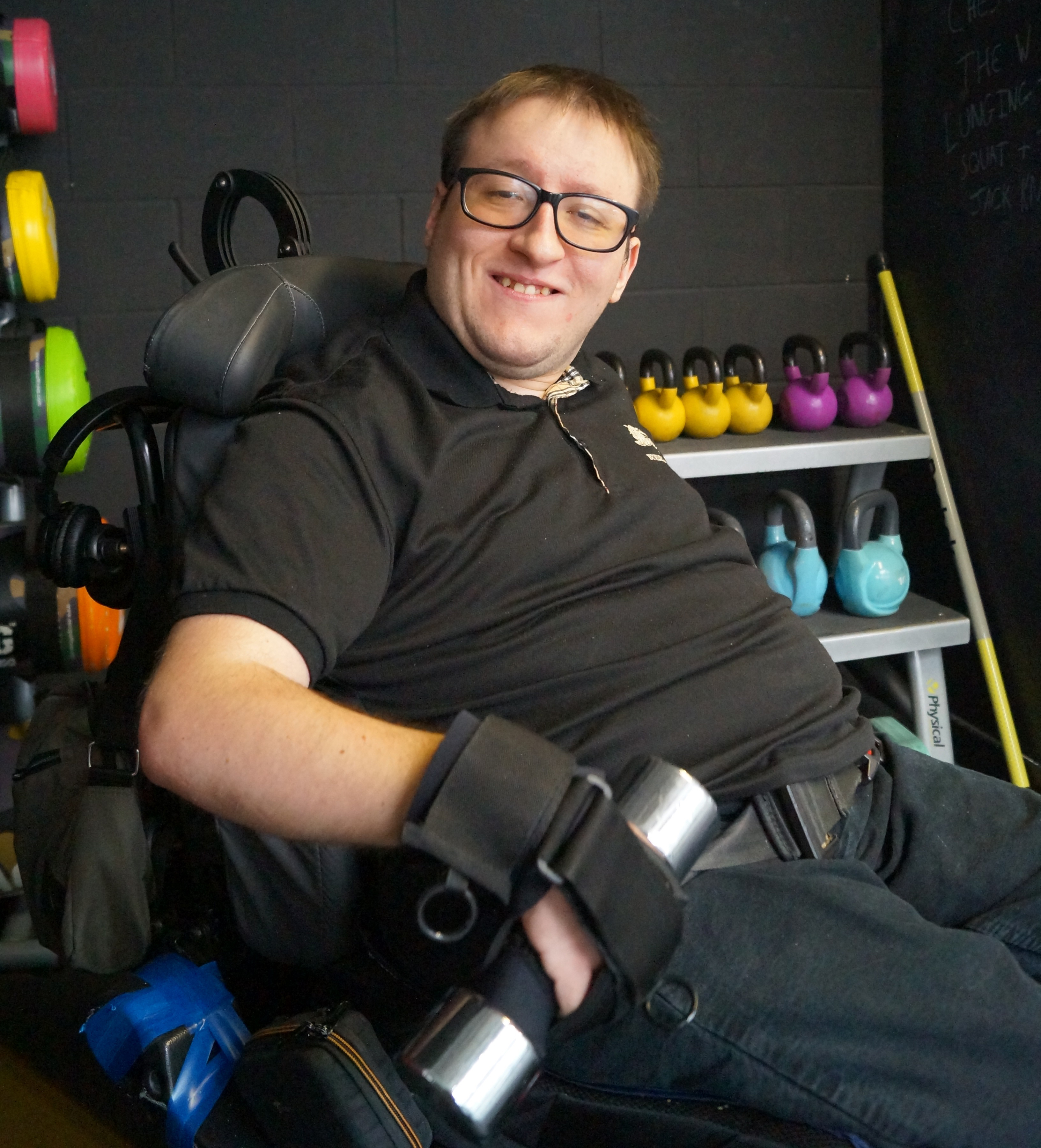Blog: “Going to the gym is a highlight of my week”
The English Federation of Disability Sport (EFDS) website features a blog post every Friday throughout the year. In 2017, we'll be sharing the experiences of disabled people, and those who support disabled people, on their journey to being more active. This week, Liam Adams tells us what it’s like to use an inclusive gym.

I started attending the Abbey Leisure Complex, situated on Whitehill Road in Cambridge, in November 2016. For most people choosing a gym is as simple as going online, looking up the cheapest option and applying to join. That wasn’t the case for me though, as I have cerebral palsy, and am completely reliant on an electric wheelchair in my day-to-day life.
I use a large chair which can make tight spaces difficult to manoeuvre around. Some people with a less severe form of cerebral palsy, who are able to bear weight, would be able to transfer onto the seat of whichever exercise machine they wish to use. Unfortunately I am unable to do this. On top of that, the lack of mobility in my joints can mean that I find it difficult to hold on to some weights and bars or handles. This combination of circumstances would, more often than not, mean that the majority of equipment in most gyms would be impossible for me to use.
Thankfully this isn’t the case with the Abbey. First off, the gym is large, with its equipment spaced well apart which makes it easy for me to get around. As an added bonus it also means that it’s easier for other people to move around without having to ask me to move and let them through. There is nothing worse than trying to work out while being constantly asked to move, whether you are disabled or not!
The fact that I can drive straight under all of the machines that I want to use is another huge plus. My usual workout revolves around upper body strength work. I do biceps and triceps curls, lateral pull-downs and reverse rows, all of which are done using cable machines. When I first started I used leather wrist straps, which belong to the gym, to enable myself to use the machines. Unfortunately, these were too big for me and were often quite loose, which would mean I would have to use lighter weights to make sure that the straps didn’t fly off my wrists.
I also enjoy using free weights, but this was out of the question when I first started as I don’t have a very strong grip. My previous gym had some specialist equipment, called active hands, which are designed to prevent its wearer from dropping a weight. I spoke with Carole MacBrayne, Healthwise Coordinator at GLL, about the possibility of applying through a charity to buy a pair. She was extremely accommodating and went above and beyond the call of duty to help me. It took a while, but she eventually managed to get funding from a local charity. This meant that I was able to use even more of the gym then I was before.

Thanks to tighter wrist straps I am now able to exercise using heavier weights than I would have otherwise and use free weights again. It wouldn’t have been possible without your help Carole so thank you!
When I first joined the Abbey I would come to the gym twice a week, on a Monday and Thursday. Now I come every day that I’m able, either with the help of my PA Dariusz or my respite PA Roy. I feel so much healthier now and what’s more, going to the gym is a highlight of my week! I’ve gotten to know and befriend many of the regulars and staff who offer plenty of encouragement and help to create a cheerful, welcoming and friendly atmosphere. I would recommend that other disabled people in Cambridge give the Abbey a try; you might be surprised at what happens!
GLL is a charitable social enterprise and one of their key objectives is to provide more accessible opportunities in local facilities and provide activities that are suitable for people with a wide range of needs. Find out more on GLL’s BETTER website, and get in touch with BETTER if you have any apprehensions about starting an exercise programme.
The Inclusive Fitness Initiative (IFI) supports leisure centres to become more welcoming and accessible environments to disabled people. Facilities across the country have been awarded the ‘IFI Mark’ accreditation. For more information and a list of accredited gyms, visit the EFDS website.